There's a Future in Your Ford
If anyone doubts that product is the key to success in the car business, just look at the new Ford Mustang– if you can find one. While The Blue Oval's US dealers watch 500's and Fusions pile up in their lots, the only signs of Mustangs are the smoking rubber streaks in the driveways leading out. And the money's not bad either. While Ford has placed huge incentives on just about every other car, truck, minivan, crossover, hybrid and SUV in their arsenal, Mustang GT's are selling within shouting distance of list price. Insiders are still amazed that a hot car like this could emerge from Ford's normally moribund new car development process. The answer is simple: Ford hired a capable, inspired product planner named Chris Theodore and set him loose.
Ford put Theodore in charge of the Mustang program, and later the GT. When Theodore punched-in, the Mustang program was in the doldrums; no one was willing to buck Ford's long-winded product development process to make a great car, instead of another example of humdrum transportation. Convinced that Ford's designers were devoid of new ideas, Theodore told the studio to make a clay model that represented a brand new interpretation of the old Mustang theme. The result is perhaps the best rendition of 'retro' on the market today. More importantly, Theodore then set to work resolving the problems of actually making the car– problems that have hamstrung Ford's creativity for decades.
When Theodore assumed control, the Mustang was due to be built upon the Lincoln LS platform. The Mustang's engineers knew it would be impossible to meet their cost and weight targets using the LS' heavy and expensive underpinnings. Theodore took one look at the program and told the engineers to forget about the Lincoln. Ditching the Lincoln's independent rear suspension and its short-long arm front suspension (upper and lower control arms of unequal length) freed-up money for a new 300hp engine. Losing the remote gas cap flap release, automatic temperature control, heated seats, navigation system, parking sensors and a host of other "luxuries" left money for big, better brakes; a suitably stout suspension and superb rack and pinion steering. And then Theodore's and his team headed into deeper, more difficult waters…
FoMoCo has a set of rules and requirements for new product development called, internally, "the cookbook'. Follow all the rules, add the right ingredients, and you move one more notch up the corporate ladder. Of course, that's not supposed to be the goal; it's supposed to lead to attractive, high-quality, cost-effective cars. But the rules certainly make it difficult for managers like Theodore who don't like to play "by the book." More specifically, the cookbook dictated standards for rear seat legroom– measurements that the short wheelbase Mustang simply couldn't meet.
The Mustang's project managers dithered for six months, trying to devise a way to meet the requirements: sufficient space for the stems of a 6'3" passenger. The seat supplier submitted design after design, but the theoretical passenger's knees still went through the passenger in front. Management seriously considered adding six more inches to the wheelbase. When Theodore got word of the impasse, he resolved the entire crisis by simply reminding the team that they were making a Mustang, not a Town Car. By bucking the system and taking the heat from top brass, Theodore kept the Mustang program on track and on target.
The result is a Mustang with, effectively, no rear seat legroom. Obviously, Mustang owners don't care. If they did, they would have bought a Fusion. In fact, I'm sure there's a ten year old boy somewhere looking at a new Mustang and saying, 'When I grow up, that's the car I want to drive!' Not "Where the Hell am I going to put my 6'3" twins?" Theodore also brought a similar focus to the Ford GT program, helping to create a budget supercar car that brought glory to both Ford and its country of origin.
So what happened to Theodore? Promoted, given new projects, made a product spokesman like GM's Bob Lutz? Theodore was, as they say, "eased out.' Making great cars, even making great cars that make money, are not qualifications for longevity in Ford's corporate community. Break the rules and you're out the door.
While there's no question that Ford is struggling under the burden of its fixed costs, creating new cars that people can't resist is still the name of the game. The Mustang's success is a reminder that Ford has the ability to do just that– if only they had the will. Put another way, if Ford could encourage and reward talented car guys like Theodore, they wouldn't have to offer customers an average of $3k off a new model. Back of the envelope? Ditch the discounts and instead of last year's two billion dollar loss, Ford could have made a billion bucks. Bottom line? Business isn't risky. People are.
More by Bob Elton
Latest Car Reviews
Read moreLatest Product Reviews
Read moreRecent Comments
- Wolfwagen How about some standardization of wiper controls? I have 5 different cars in my family's fleet and have driven a ton of rentals for work. Holy F*cking Sh*t Balls! Left side, right side, push the lever up to turn on, push the lever down to turn on, push the lever forward to turn on, pull the lever back to turn, slide indicator to the left to decrease intermittent wipe time, slide indicator to the right to decrease intermittent wiper time.
- Redapple2 Someone else said it. Looks like a 4/5 size ford edge (front and back)
- Rochester Tim, where was your head at in 1984 when it became a law to wear your seatbelt? Personally I thought it was none of the Gubmint's bizniss to force me to belt up. Today, I feel exposed and unsafe without it. My point is, give it time, both the tech and your values will evolve.
- Theflyersfan After looking it over, Honda, I want royalties for this one: The Honda Yawn.
- V8fairy Not scared, but I would be reluctant to put my trust in it. The technology is just not quite there yet





















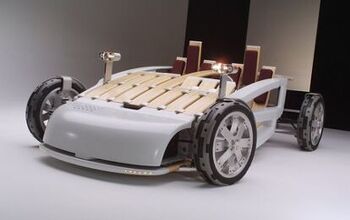
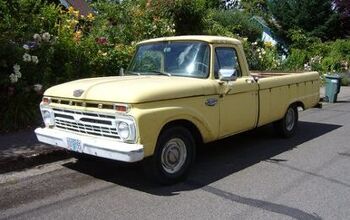
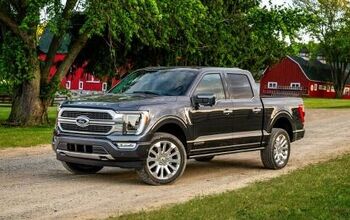
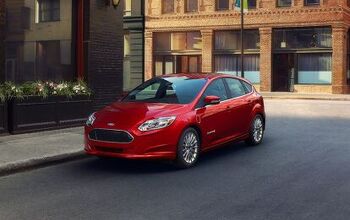
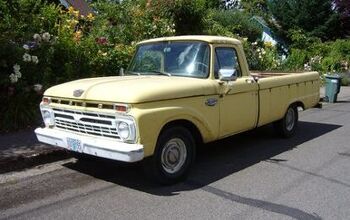










Comments
Join the conversation
brilliant. not only well-researched but apparently based on inside contacts. well written. a book could be made of this (and probably will be).
Ford deserve to fail if they have this little sense. Bureaucratic, mediocre and conformist to the point of self-destruction.